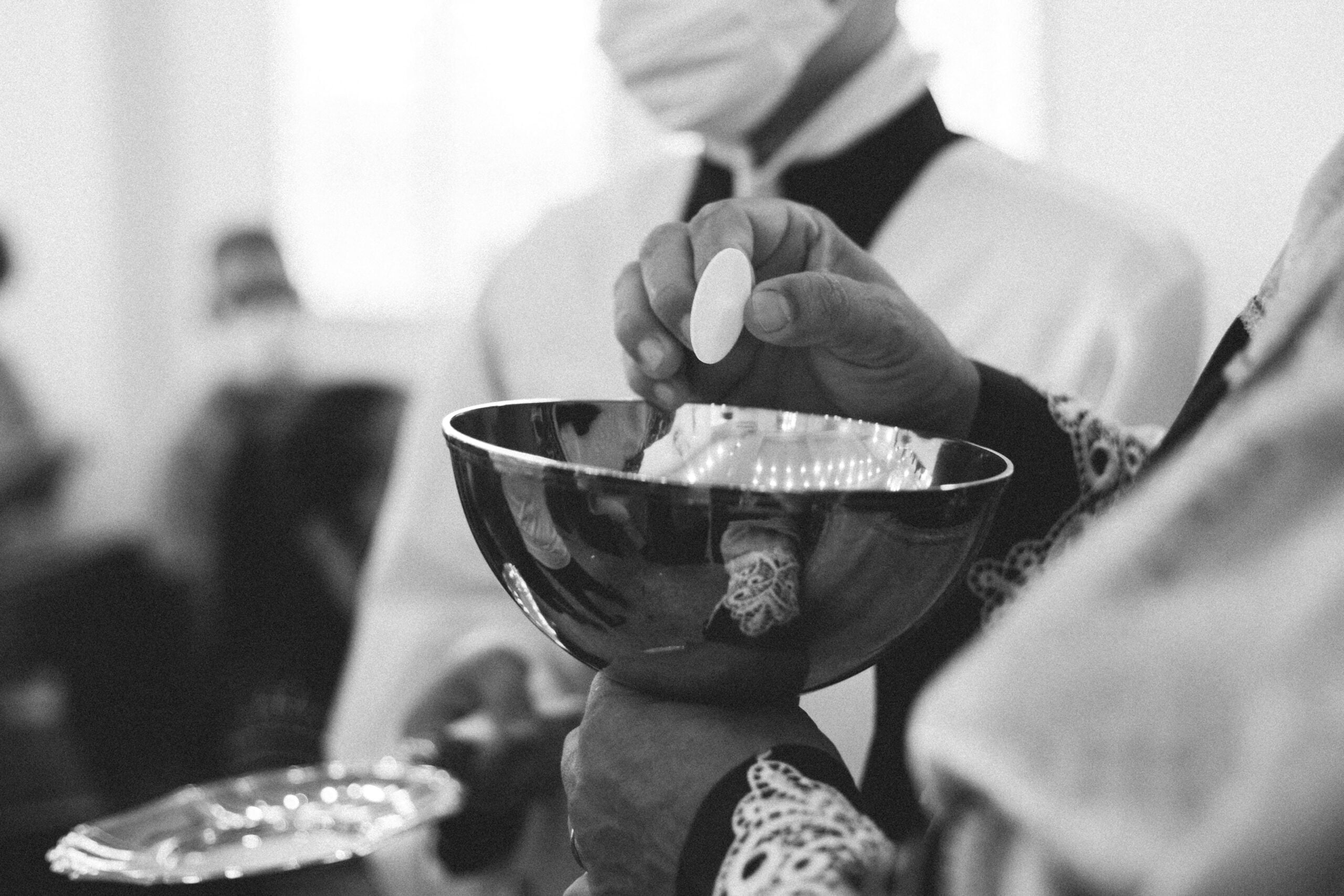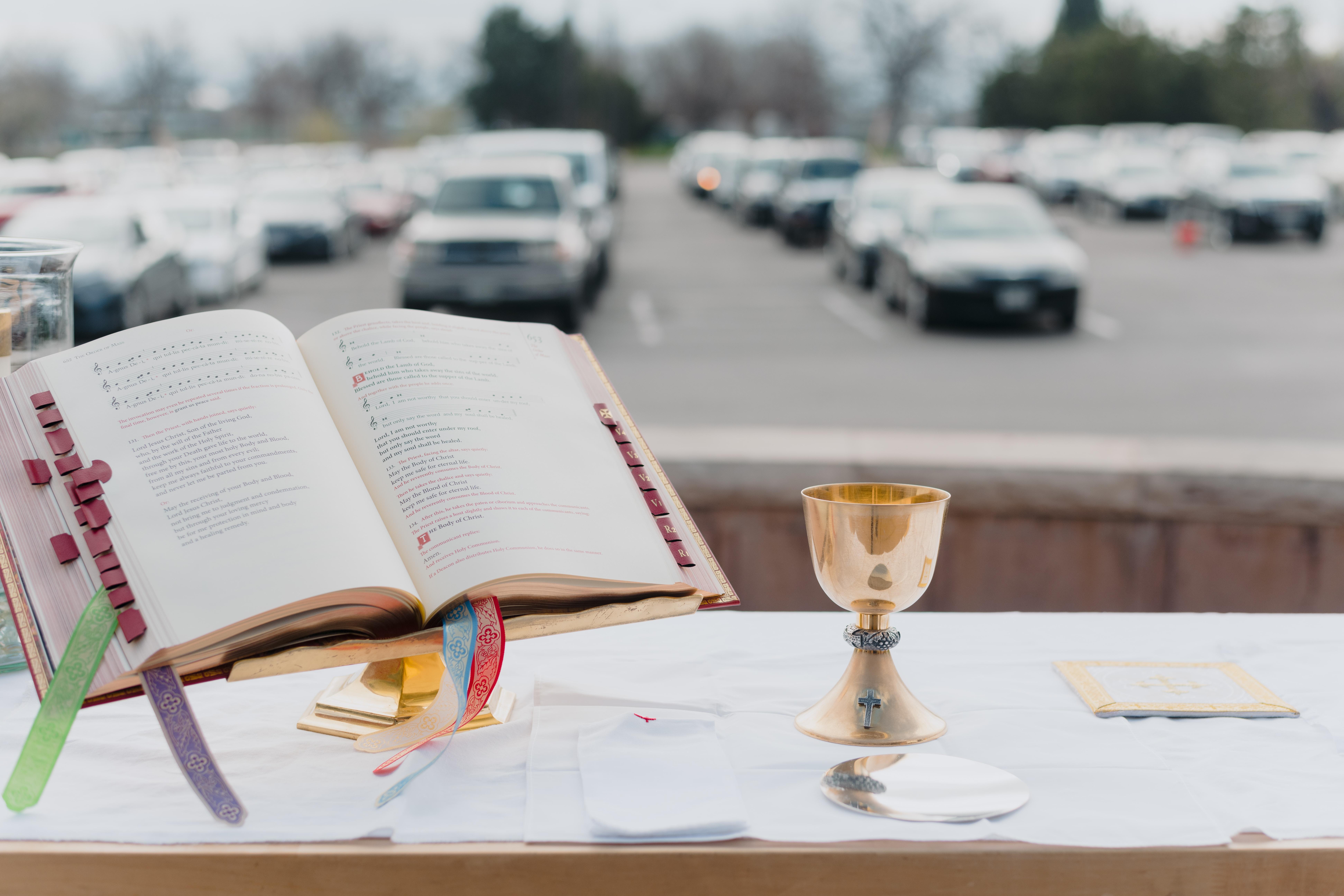Are you ready to embark on a journey through time, unraveling the captivating story of one of Christianity’s most sacred traditions? Brace yourself for an in-depth exploration of the profound historical significance of the Eucharist. In this article, we will delve into the depths of religious history, examining the evolution, interpretation, and impact of this sacred Christian ritual. Join me as we unravel the intricacies of the Eucharist’s cultural and theological context, and witness its enduring significance within Christianity. Get ready to be enlightened and inspired by the rich tapestry of history woven by the Eucharist.

Historical Significance of the Eucharist: Uncovering Christianity’s Sacred Evolution
The Eucharist, a cherished Christian rite steeped in centuries-old tradition, holds immense historical significance within the realm of Christianity. From its early beginnings to its present-day practices, this sacred sacrament has evolved and shaped the course of Christian history. By examining its historical context, we can unravel the profound impact the Eucharist has had on the development and expression of the faith.
Christian Origins of the Eucharist
At the heart of the Eucharist lies the words and actions of Jesus during his Last Supper. Long before the formation of the New Testament scriptures, early Christians were already gathering to celebrate this sacred ritual. The Eucharist’s historical significance is rooted in its connection to Jesus’ final meal with his disciples. A simple act of breaking bread and sharing wine, it became a potent symbol of unity, remembrance, and mystery for believers across generations.
Role in Early Christian Worship
As Christianity spread and developed, the Eucharist became an integral part of Christian worship. In the early years, Christians would gather every Sunday to celebrate this sacred ritual. The Eucharist’s regular observance nurtured a sense of communal identity and reinforced the belief in the presence of Christ within the bread and wine. It served as a visible expression of faith, a tangible link to Jesus, and a powerful reminder of his sacrifice.
The Eucharist and the Old Testament
To fully grasp the historical significance of the Eucharist, one must also explore its connection to the Old Testament. Just as God provided manna to sustain the Israelites during their journey in the desert, the Eucharist symbolizes God’s ongoing nourishment for his people. The Eucharist’s roots in the Old Testament connect it to a long lineage of divine sustenance and grace. This historical link enhances its spiritual and historical significance, reinforcing its importance within Christian theology.
Evolution of Liturgical Practices
Over time, liturgical practices surrounding the Eucharist evolved, giving rise to different traditions and variations. For example, the Roman rite incorporates readings from the Bible, psalms, hymns, and prayers as part of the liturgy. These diverse liturgical practices reflect the rich historical tapestry woven by the Eucharist throughout the ages. As Christian communities developed distinct practices and traditions, the Eucharist served as a unifying force, while also showcasing the diversity within Christianity itself.
Interpretations Throughout History
One of the most intriguing aspects of the Eucharist’s historical significance is the varied interpretations it has elicited over time. The presence of Jesus within the bread and wine has been a focal point of theological debates and discussions throughout centuries. Different interpretations have emerged, ranging from symbolic representations to beliefs in transubstantiation and consubstantiation. These ongoing debates not only attest to the profound impact of the Eucharist but also underscore the complexities of religious thought and practice.
“The historical significance of the Eucharist lies in its ability to transcend time and connect believers with the earliest Christian traditions.”
In summary, the historical significance of the Eucharist stretches far beyond its role as a regular Christian ritual. Rooted in the words and actions of Jesus, the Eucharist’s historical journey encompasses its connection to early Christian worship, its ties to the Old Testament, the evolution of liturgical practices, and the diverse theological interpretations it has fostered. As we delve into the profound historical significance of the Eucharist, we uncover the intricate tapestry of Christianity’s sacred evolution.
The Eucharist has a rich and fascinating history that spans centuries, connecting believers to the earliest days of Christianity. If you’re curious about the origins and development of this important sacrament, take a deep dive into the history of the Eucharist. Discover how it has evolved over time, from its roots in the Last Supper to its significance in modern worship. To explore this captivating journey, click here: history of the eucharist. Let the stories and traditions of the Eucharist inspire and deepen your faith.
FAQ
Question 1
What is the origin of the Eucharist?
Answer 1
The Eucharist has its origin in the Last Supper, where Jesus established the sacrament through his words and actions.
Question 2
Has the celebration of the Eucharist always been a part of Christian worship?
Answer 2
Yes, the Eucharist has been celebrated by Christians even before the formation of the New Testament scriptures. It has been a central act of Christian worship throughout history.
Question 3
How often is the Eucharist celebrated?
Answer 3
The Eucharist was originally celebrated every Sunday and continues to be a regular practice in many Christian traditions.
Question 4
What is the significance of the bread and wine in the Eucharist?
Answer 4
The bread and wine are consecrated during the Eucharist and are believed to represent the body and blood of Christ. Christians generally recognize a special presence of Christ in these elements.
Question 5
How has the interpretation of Jesus’ presence in the Eucharist evolved over time?
Answer 5
Throughout history, the interpretation of Jesus’ presence in the bread and wine of the Eucharist has varied. Different theological debates and traditions have shaped these interpretations, resulting in diverse understandings among Christian denominations.
“`json
“`
- Senior at What Age: Benefits & Eligibility Guide - March 29, 2025
- Unlocking Senior Benefits: How Old is a Senior? Your Complete Guide - March 29, 2025
- Master Russian Politeness:A Guide to Saying Please - March 29, 2025
















